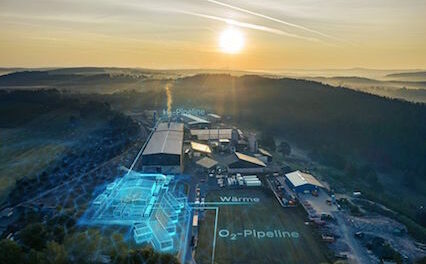 Responding to recent news that Germany’s two energy giants, EON and RWE, have announced that they are pulling out of all new nuclear development in the UK, Andrew Horstead, energy risk analyst at energy and carbon management specialists, Utilyx, has said that this spells worrying times for the future of energy in the UK.
Responding to recent news that Germany’s two energy giants, EON and RWE, have announced that they are pulling out of all new nuclear development in the UK, Andrew Horstead, energy risk analyst at energy and carbon management specialists, Utilyx, has said that this spells worrying times for the future of energy in the UK.
He commented, “This is bad news for the future energy security of the UK. The UK is paying the price of Germany’s decision to pull out of nuclear and the subsequent losses endured by both RWE and EON, who have clearly taken stock of the current economic conditions and decided that the time is not right to be investing such massive sums in new capacity.
“With this latest setback, the UK is set to lose 12GW or 13% of its installed coal generating capacity by 2015 and a further 7GW of nuclear capacity by 2020 due to planned decommissioning. Unfortunately, poor returns are discouraging investment in traditional thermal generation. Low carbon technologies are expensive and need subsidies to get built, and there is still uncertainty over reforms to the UK electricity market.
“The UK’s future energy outlook is quickly moving from uncertain to fragile. There needs to be a replacement for the Horizon consortia and quickly, otherwise the country will face huge consequences around the security of supply around the turn of the decade. Will enough nuclear power stations be built for the government to meet its low carbon emissions? Will the UK have enough power to keep the lights on, and if so, at what cost to consumers?
“To cover the planned capacity closures, the UK will increasingly rely on renewable generation as part of its low carbon commitments while gas use is expected to increase. Renewables are set to benefit from generous subsidies and we expect an accelerated deployment of renewables over the coming years. Gas will be used as back-up generation for intermittent wind although costs are expected to stay high. Current restrictions will prevent any new coal fired power stations being built but without nuclear the system could be very stretched.
“With only 60 large renewable builds (greater than 10GW) getting commissioned in the last two years (according to Ofgem’s ROC register), the future of renewable energy production heavily depends on businesses’ willingness to invest in small scale generation. The government is aware of this and its electricity market reform proposals outline the benefits associated with businesses investing in small scale generation projects. Even organisations with limited opportunities for on-site generation due to space or budget restrictions can take greater control of how much money they pay by purchasing green energy via long term power purchase agreements (PPAs). The huge advantage is that prices can be guaranteed and grid charges and environmental taxes are avoided.
“We are operating in a high priced environment where demand is increasing all the time, particularly from growing economies such as China. In response, businesses need to be prepared for a step change in how they manage their energy buying to avoid price risks and maximise the opportunities that these ever changing markets present.
“The government must set the right framework if it is to persuade the private sector to invest in low carbon and renewable forms of generation. Investors will not be drawn to the UK if policy remains uncertain, overly complex and subject to change. This is an opportunity the UK simply cannot afford to miss. Failure to act now will only add additional cost and delay further down the line.”



